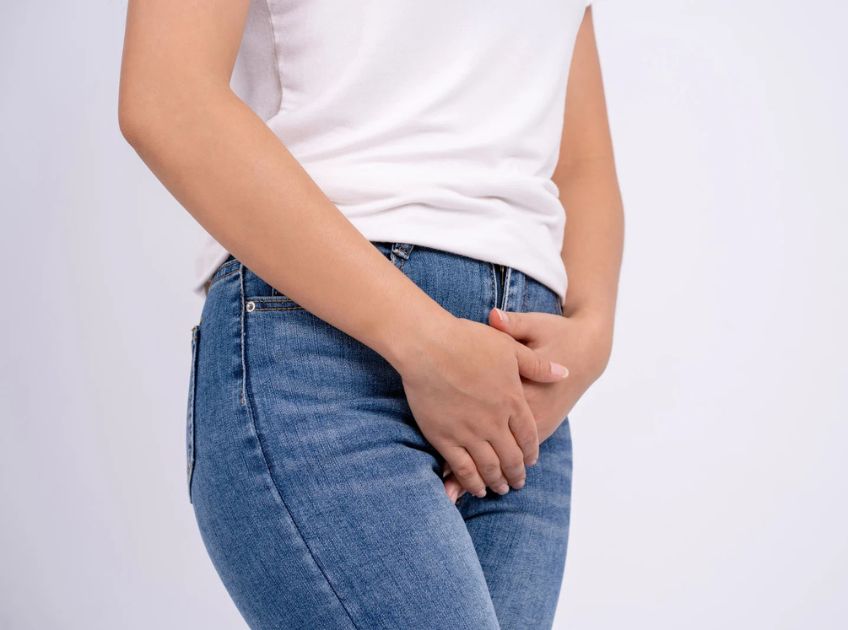
Important: This article is for informational purposes only. Please read our full disclaimer for more details.
Vaginal dryness is a common concern for women, particularly during and after menopause, but it can occur at any age. It happens when the vaginal tissues produce less natural lubrication, leading to discomfort, itching, burning, or even pain during intimacy.
The most common cause is a drop in estrogen levels, which can occur with menopause, childbirth, breastfeeding, or certain medical treatments. Other contributors include stress, dehydration, harsh soaps, and some medications. While medical treatments like estrogen therapy are available, many women prefer natural options to restore comfort and confidence.
5 Natural Remedies That May Help Relieve Vaginal Dryness
1. Coconut Oil
Coconut oil is a gentle, natural moisturizer that helps restore hydration to delicate vaginal tissues. Its soothing properties can reduce irritation and make intimacy more comfortable. Studies have highlighted its effectiveness as a natural emollient that helps repair skin barrier function (1).
How to use: Choose pure, organic, cold-pressed coconut oil. Apply a small amount externally or use as a natural lubricant if recommended by your healthcare provider.
2. Aloe Vera Gel
Aloe vera is widely known for its hydrating and healing properties. Research shows that aloe vera improves skin hydration and elasticity, making it a safe option for soothing dryness (2).
How to use: Use pure, preservative-free aloe vera gel. Apply a small amount externally to relieve irritation and dryness. Always ensure the product is free from added fragrances or alcohol.
3. Flaxseed or Omega-3 Fatty Acids
Omega-3 fatty acids support hormone balance and help reduce inflammation, which may indirectly improve vaginal lubrication. Flaxseeds, chia seeds, walnuts, and fatty fish like salmon are excellent dietary sources.
Evidence: A study in Menopause found that women who consumed omega-3-rich diets experienced improvements in vaginal dryness and overall comfort (3).
How to include: Add flaxseed to smoothies, eat fatty fish twice a week, or take an omega-3 supplement after consulting your doctor.
4. Hydration and Diet
Sometimes, the simplest remedy is staying hydrated. Adequate water intake keeps tissues, including vaginal walls, supple and healthy. In addition, a diet rich in vitamin E, antioxidants, and phytoestrogens (plant-based estrogens) may help support natural lubrication.
Examples: Soy, chickpeas, sunflower seeds, avocados, and leafy greens can be beneficial.
5. Regular Sexual Activity or Vaginal Stimulation
Regular intimacy, whether with a partner or solo, increases blood flow to the vaginal area and helps maintain natural lubrication. Gentle use of vaginal moisturizers or lubricants (preferably natural and unscented) can also make intercourse more comfortable.
Choosing Gentle, Skin-Friendly Products
When managing vaginal dryness naturally, avoid harsh soaps, scented wipes, and perfumed lotions that strip away natural oils. Instead, opt for:
- Unscented, pH-balanced cleansers
- Natural oils (like coconut or olive oil)
- Products specifically designed for sensitive areas
These small adjustments can prevent irritation and help preserve natural moisture.
What Science Says About Natural Approaches
- Aloe Vera: Clinical studies have shown its moisturizing effect on skin, supporting its use for vaginal dryness (4).
- Omega-3s: Research in Obstetrics and Gynecology journals links omega-3 supplementation with improved vaginal health (5).
- Phytoestrogens: Found in soy and flaxseeds, they mimic estrogen’s effects in the body and may improve dryness symptoms in postmenopausal women (6).
Final Thoughts
Vaginal dryness is a natural and common issue, but it doesn’t have to affect your comfort or confidence. Natural remedies like coconut oil, aloe vera, omega-3s, hydration, and gentle sexual activity can all support vaginal health. Paired with the right products and a healthy lifestyle, these approaches offer safe and effective relief.















